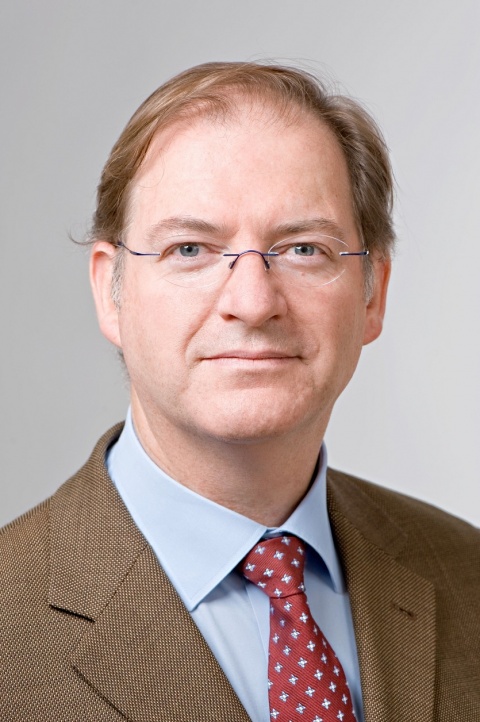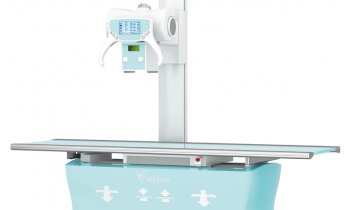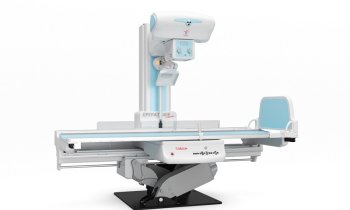Article • Refugee pediatrics
‘We saw unimaginable medical conditions’
In a vulnerable system the most vulnerable users suffer most – and in the German hospital surgical care system the most vulnerable are children – and, above all, immigrant children.
Quite a bit of whingeing was heard at the 134th German Surgery Congress in Munich regarding the inadequate framework conditions to provide safe and reliable surgical services in hospitals and private practices: not enough staff, too much bureaucracy, the commodification of healthcare. But, there were also encouraging news, surprisingly in the context of demographic change. Demographic change is not only about an ageing population, it is also about the growing number of children due to increasing birth rates in Germany and the influx of immigrant children and adolescents. Their care is a particular challenge to the healthcare system, not only in financial terms but also right upon hospital Admission.
Munich medics beat a huge challenge

In summer 2015, Munich showed true grit when tens of thousands of refugees, many of them children and teens, arrived in the city after a gruelling journey in the sweltering heat and had to be provided with medical care right in the reception camp. ‘Among the refugees we saw unimaginable medical conditions,’ reports Professor Stuart Hosie, Medical Director of the Department of Pediatric Surgery at Klinikum Schwabing, still visibly shocked. ‘We saw a kidney tumour that covered the entire abdomen. We saw families who carried their children, paraplegic after a war injury, all the way to Germany. Not to mention the TBC cases in numbers that were to be expected.’ It was a state of emergency in all hospitals throughout Munich but, looking back, the pediatric surgeon is proud to say ‘the hospitals took on and mastered the enormous challenge of caring for the refugee children’.
It was a steep learning curve for everybody involved. One major take-home lesson: without volunteers the feat would not have been possible. In the reception camp Bayernkaserne in Munich three volunteer pediatricians had a first look at the children so they could be sent on to the hospital in the Munich centre in an orderly fashion. There, samples were taken to test for multi-resistant bacteria. According to Hosie unaccompanied adolescents were a difficult group as many of them refused to stay in the hospitals, while others were grateful for the help they received and enjoyed the ‘luxurious’ hospital care.
Hospital staff as interpreters
We were lucky to be able to draw upon our pool of foreign staff
Stuart Hosie
Immigrant children who need medical care and their families are under extreme stress and the difficult overall situation is exacerbated by language and communication problems. Hosie: ‘We were lucky to be able to draw upon our pool of foreign staff.’ More than 100 employees with basic clinical or nursing training and mostly native speakers of 35 foreign languages offer interpreting help in all sites of the Munich Municipal Hospital Group. 75 percent of the internal interpreters have a nursing background. The internal interpreting service not only supports the hospital staff with diagnoses and medical reports and information sessions, but is also available free of charge for patients and their families. Foreign patients, however, who are scheduled for treatment, have to pay the interpreting service and most patients from Arab countries bring along their own interpreters.
Intercultural care is a major and important task for the hospital: Of the German cities with more than 200,000 inhabitants, Munich has the second largest percentage of foreigners (23.0 percent) with Frankfurt holding the top spot (25.9 percent). Serving approximately 1,000 non-German patients per month, the Munich Municipal Hospital Group is assumed to be the largest provider of in-patient services for immigrants. The group‘s department for intercultural care wants to dismantle linguistic and cultural access barriers, increase intercultural competency in the care of non-German patients and develop a service offering geared towards immigrants.
The experienced nurse often observes more
A brochure, published by the Federal Government’s Commissioner for Migrants, Refugees and Integration, on the particular needs of immigrant patients supports the efforts. Pediatric surgeon Hosie points out that today all major pediatric clinics in the larger cities are well prepared to meet these needs. However, children require adequate care across all clinical disciplines and there is a marked lack of comprehensive paediatric centres providing child-oriented environments that are suited for teaching. The crucial issue, however, is the shortage of paediatric nurses since the number of nurses correlates with mortality, no matter the country of origin of the young patients. As Hosie underlines, ‘an experienced nurse sees more that an inexperienced physician’.
Profile:
Following studies at the University Nueva Granada, Professor Stuart Hosie received his medical training at the Military Academy and Central Military Hospital in Santa Fé de Bogotá in Columbia (1981 to 1987). His interest in pediatric surgery began in 1988, at University Hospital Eppendorf, Hamburg, Germany. In 1991, based in Düsseldorf, he became licenced to practice in Germany. Via Mannheim, Hosie went to Heidelberg, completing his habilitation there in 2003. In 2006 he was appointed Professor for Pediatric Surgery at Technical University Munich. He is also Medical Director of the Clinic of Pediatric Surgery at Schwabing Hospital, a facility of the Munich Municipal Hospital Group. The professor is also a member of the board of the German Society for Paediatric Surgery (DGKCH).
14.06.2017









